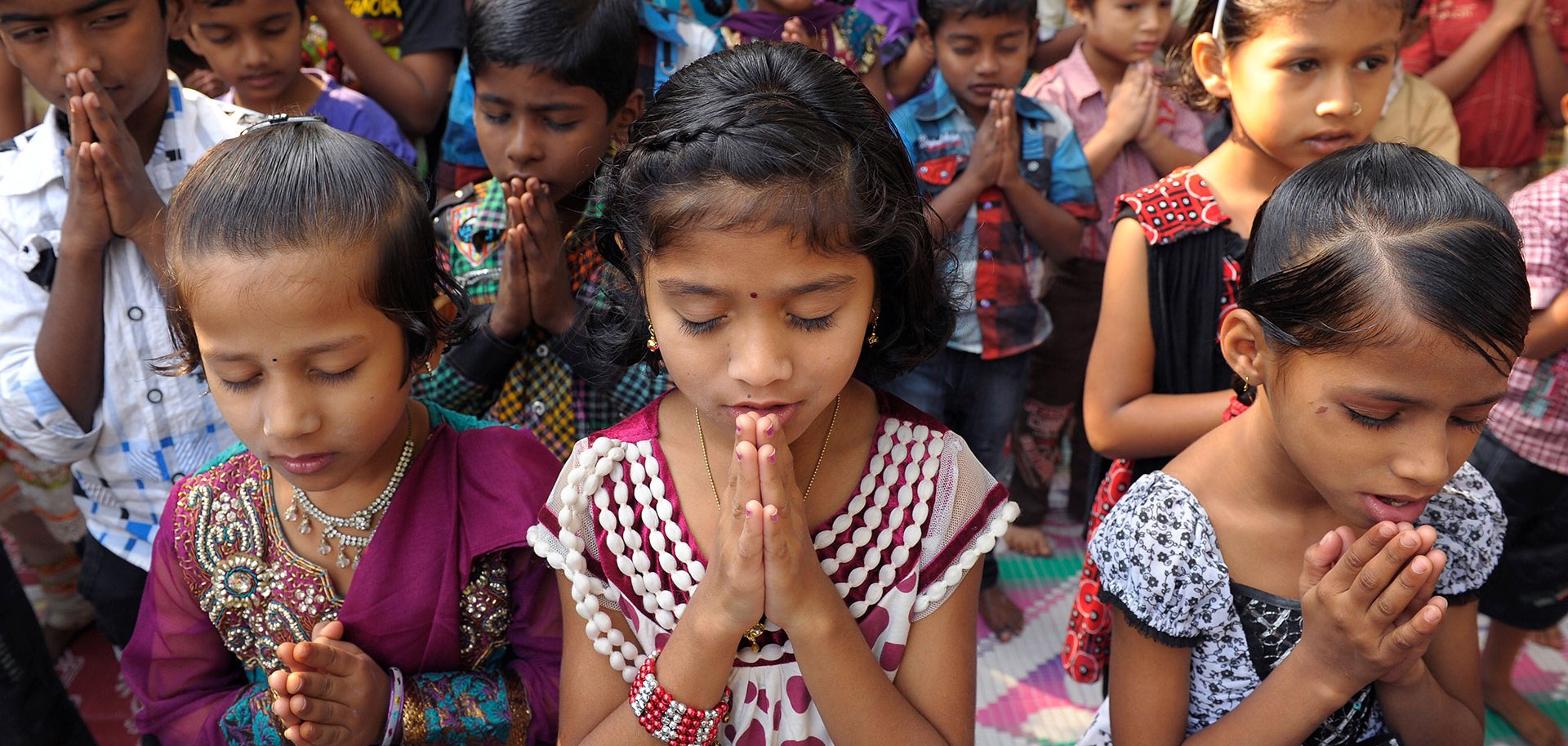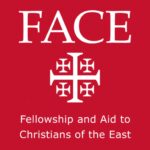Reflection on Eastern Christians

Readings
Acts 10:25-26; 34-35; 44-48
When Peter entered, Cornelius met him and fell down at his feet and worshiped him.
But Peter lifted him up, saying, “Stand up; I too am a man.”
And Peter opened his mouth and said: “Truly I perceive that God shows no partiality,
but in every nation any one who fears him and does what is right is acceptable to him.
While Peter was still saying this, the Holy Spirit fell on all who heard the word.
And the believers from among the circumcised who came with Peter were amazed, because the gift of the Holy Spirit had been poured out even on the Gentiles.
For they heard them speaking in tongues and extolling God. Then Peter declared,
“Can any one forbid water for baptizing these people who have received the Holy Spirit just as we have?”
And he commanded them to be baptized in the name of Jesus Christ. Then they asked him to remain for some days.
PSALM 98:1-4
O sing to the Lord a new song, for he has done marvelous things. His right hand and his holy arm have gotten him victory.
The Lord has made known his victory; he has revealed his vindication in the sight of the nations.
He has remembered his steadfast love and faithfulness to the house of Israel. All the ends of the earth have seen the victory of our God.
He has remembered his steadfast love and faithfulness to the house of Israel. All the ends of the earth have seen the victory of our God.
Make a joyful noise to the Lord, all the earth; break forth into joyous song and sing praises.
John 4:7-10
Beloved, let us love one another; for love is of God, and he who loves is born of God and knows God.
He who does not love does not know God; for God is love.
In this the love of God was made manifest among us, that God sent his only Son into the world, so that we might live through him.
In this is love, not that we loved God but that he loved us and sent his Son to be the expiation for our sins.
John 15:9-17
As the Father has loved me, so I have loved you; remain in my love.
If you keep my commandments, you will remain in my love, just as I have kept my Father’s commandments and remain in his love.
I have said these things to you so that my joy may be in you, and that your joy may be complete.
“This is my commandment, that you love one another as I have loved you.
No one has greater love than this, to lay down one’s life for one’s friends.
You are my friends if you do what I command you.
I do not call you servants any longer, because the servant does not know what the master is doing; but I have called you friends, because I have made known to you everything that I have heard from my Father.
You did not choose me but I chose you. And I appointed you to go and bear fruit, fruit that will last, so that the Father will give you whatever you ask him in my name.
I am giving you these commands so that you may love one another.
Reflection
By H.E. Cardinal Michael Fitzgerald
“Remain in my love” says Jesus. It is good to notice this word ‘remain’ which occurs several times in today’s Gospel. It had already come up last Sunday when Jesus compared himself to a vine: “I am the vine, you are the branches”, he said. “Whoever remains in me, with me in him, bears fruit in plenty.”
‘Remain’ indicates something which lasts, which endures. It signifies faithfulness.
“Remain in my love”: it is not enough to love Jesus for a day, for one day a week; it has to be something which continues every day and lasts the whole of our lives. But really, it is not so much a question of our loving Jesus, but of letting him love us. “Remain in my love”, he says. We are to be conscious that Jesus loves us always, and to such an extent that he has given his life for us (which is what we celebrate in this Eucharist). So this encourages us to respond to him with fidelity.
I think we can apply this idea to the Christians of the East for whom we are praying in a special way today. These Christian communities give us an example of fidelity. They go back in history to the first communities of those who embraced the faith in Jesus Christ, in the land where Jesus lived and in the surrounding countries. They have had a difficult history, for there were persecutions under the rule of different Roman emperors, and then these lands were overrun by the Muslims. Yet in the midst of Islam they have survived and are still surviving. Despite suffering discrimination, and sometimes persecution, they have given and are giving faithful witness to the Lord Jesus. So we can give thanks to God for their example.
Let me tell you a bit more about these Christians of the Middle East. They belong to Churches in their own right, Churches which have their own liturgy, their own legal systems, and their own spiritual traditions. Some of these Churches are Catholic, in other words they recognize the Pope as the head of the Universal Church. But many of these Christians belong to Churches which do not give this recognition to the Pope. We can thank God that there is more and more cooperation between the Churches, but one of the things that we should pray for today is that all Christians may be united, since our divisions are a scandal to those who are not Christians.
Let me mention in particular the Eastern Catholic Churches. There is the Maronite Church which originated in Lebanon; the Melkite or Greek Catholic Church; the Syrian Catholic Church; each of these churches is headed by a Patriarch, who takes his title from Antioch of Syria, the city in which the followers of Jesus were first called ‘Christians’. Then there is the Coptic Catholic Church headed by the Patriarch of Alexandria; the Chaldean Church which originated in Iraq and is the largest Christian community in the country; there is finally the Armenian Catholic Church. There is also the Latin Patriarchate of Jerusalem, so in the land of Jesus there are Latin rite Catholics, like us, but who are Arabic-speaking.
This multiplicity of Churches is perhaps bewildering, but the variety is a source of richness. It means that the Universal Church is like a bouquet of flowers, each one with its own shape and colour, but coming together into one.
Alongside the Catholics there are those Christians who do not recognize the Pope as the head of the Universal Church. We often refer to them as the Orthodox Churches.
The most numerous of all are the Coptic Orthodox who are about 10 million.
At the beginning of March, as you will remember, Pope Francis journeyed to Iraq. On arrival, in his first speech, he said:
I greet with affection the bishops and priests, men and women religious and all the faithful of the Catholic Church. I have come as a pilgrim to encourage them in their witness of faith, hope and love in the midst of Iraqi society. I also greet the members of other Christian Churches and Ecclesial Communities, the followers of Islam and the representatives of other religious traditions. May God grant that we journey together as brothers and sisters in “the firm conviction that authentic teachings of religions invite us to remain rooted in the values of peace… mutual understanding, human fraternity and harmonious coexistence” (Document on Human Fraternity, Abu Dhabi, 4 February 2019).
The Pope’s message of fraternity and peace really made an impression on the people of Iraq, since they, and indeed the people of the whole region, have been suffering from violence and war, to which must be added now the effects of the Coronavirus pandemic.
Let us open our hearts to the Christians of the East. As we pray for them, let us be inspired by their courage, their endurance and their faithful witness to the Gospel.
Prayer
by H.E. Cardinal Michael Fitzgerald, M.Afr
O God, Father of all, we give you thanks for the example of fidelity of our brothers and sisters of the Eastern Churches. We ask you, through the intercession of Mary, Theotokos, Mother of God, whom they honour so greatly in their prayer and liturgy, to grant them strength in the midst of immense difficulties; so that they may continue bearing witness to Jesus Christ, Our Lord, who lives and reigns with you, in the unity of the Holy Spirit, one God, for ever and ever. Amen.
